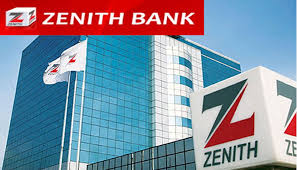With an economy on the throes of recession coupled with the recent double hike in electricity tariff and petrol price, it seems small businesses are in for a very rough ride; BENJAMIN UMUTEME writes.
In what has become a recurring decimal, the federal government last week increased electricity tariff in what it called ‘service reflective tariffs’. The following day, the Petroleum Product Marketing Company (PPMC) announced an increase in the ex-depot price of Premium Motor Spirit popularly known as petrol.
Since the twin increase, there have been outcries from all sectors of the country. Analysts and experts alike have continued to condemn government’s action, describing it as “insensitive and total disregard for Nigerians.”
Informed Nigerians are of the view that as the 15th oil-producing country in the world, Nigeria has no business importing fuel which continues to serve as a drawback to stable petrol price.
Price increases
In announcing the increase, the federal government said the increase will only be based on services rendered by the Distribution Companies (DisCos).
“Under the service based tariff, feeders from where customers receive power supply to their neighbourhoods have been categorised into Bands A to E with the tariff increase in descending order.
“Customers under Band A who will enjoy a minimum of 20 hours of power supply were expected to pay N56 per kilowatt-hour while customers on Band B with minimum 16 hours supply shall pay N54 per kilowatt-hour,” Mr. Abdulazeez Abdullahi, the head, corporate communication of Kaduna Electric said.
He also said customers on B and C who would be enjoying not less than 12 hours of supply shall pay N50 per Kilowatt hour.
Abdullahi said further that the tariff increase for customers who fall under B, D, and E has been frozen until further directive from the regulator. While Nigerians were yet to digest the import of tariff increase, the Petroleum Product Marketing Company (PPMC), further ruffled the waters when it announced an increase in the ex-depot price of petrol from N138 to N151.56.
In increasing prices, the PPMC, in a memo signed by D.O Abalaka, a depot manager, stated that: “Please be informed that a new product price adjustment has been effected on our payment platform. To this end, the price of Premium Motor Spirit is now one hundred and fifty one naira, fifty-six kobo (N151.56) per litre.”
Nigerians kick
As expected, Nigerians have been reacting since the double whammy increase in the two-fulcrum of development. For the Trade Union Congress (TUC), government’s action amounts to killing the dead. According to the TUC, at a period when the fatally depraved Nigerians are reeling under the devastating effects of Covid-19, when their means of livelihood are struggling to regain its stamina, when massive layoff and disengagement of workers is the order of the day, when those who are lucky to receive salaries are paid in fractions, when the already saturated labour market has reached its crescendo, when citizens have taken up arms against fellow citizens in desperate effort to eke a living. The Nigerian Labour Congress (NLC), expressed shocked at the development calling on the government to reverse the price.
“The increase in price of petrol has happened now more than three times in three months; only yesterday they hiked the tariffs of electricity. And to compound it, they also reduced the interest rate of savings, which affects mostly the poor and the vulnerable.”
Also, the Centre for Democracy and Development (CDC) described the government’s action as murdering sleep. Even the organised private sector also reacted saying the increase will lead to increase in prices of goods and services across board.
World Bank’s conditionalities
At the height of the coronavirus pandemic, Nigeria among several other countries applied to the World Bank and the International Monetary Fund (IMF) for loans to help it mitigate the devastating effects of the pandemic in its revenue stream. While the two institutions agreed to the request, there were conditions attached to the release of the funds which included unification of the exchange rate, introduction of new electricity tariffs, and removal of fuel subsidy.
Analysts are, however, divided on this as some think that shrinking revenue has made petrol subsidy and the current tariff regime unsustainable.
No going back
On Monday, President Muhammed Buhari at the retreat for First Year Ministerial Performance Review at the State House informed his audience that there was no provision for fuel subsidy in revised 2020 budget and reiterated the need to do away with fuel subsidy.
With Nigeria spending N535.9 billion on subsidy and FAAC allocation, the president said the country “can no longer afford the cost.”
Speaking further on the issue, the Minister of Information and Culture, Lai Mohammed, said opposition to the twin increase was unnecessary and totally mischievous as the increase was largely due to the price of crude inching up. He insisted that under the prevailing economic conditions subsidising fuel was no longer feasible.
He said: “The government can no longer afford fuel subsidy, as revenues and foreign exchange earnings have fallen by almost 60 percent, due to the downturn in the fortunes of the oil sector.
“Yet, the government has had to sustain expenditures, especially on salaries and capital projects. Even though we have acted to mitigate the effect of the economic slowdown by adopting an Economic Sustainability Plan, we have also had to make some difficult decisions to stop unsustainable practices that were weighing the economy down.”
Implication for businesses
For ordinary Nigerians and business owners, the increase is coming at a time when the effect of the Covid-19 pandemic has “dealt” with their incomes and revenues.
Speaking with this reporter, the CEO of Gubenco Nig. Ltd. said the increase will affect prices of goods and services across board.
“This petrol price increase will affect everything in the economy. It will cause a lot of pain to the poor who will be at the receiving end of the decision,” he said.
He noted that if the Nigeria was refining its crude, the increase in petrol price would not have matter as pump prices will still be low. “A country that produces crude oil cannot refine it. In fact every sector of the economy will be affected by this decision.”
Speaking with Blueprint Weekend, Seun Isaac, who runs a barber’s shop in Karu, Abuja, said the increase in fuel price and electricity tariff would further worsen an already bad situation. According to him, the twin increase will further deplete his revenue, which had been affected by the prolonged lockdown occasioned by Covid-19.
“The decision to hike electricity tariff and fuel price is completely targeted at crippling small businesses. Even before now, there was nothing like sustained electricity that could propel small businesses. I run my small generator every day to barb some few people who could afford to pay N200. And if the increase the price of my hair cit now, who will patronise me?
“It is sad for a government to play on sensibilities of the people whose anger had been bottled up because of the bad policies of government since 2015. Any government with a human face will not dare to impose additional hardships on a people still struggling to cope with the coronavirus pandemic.”




